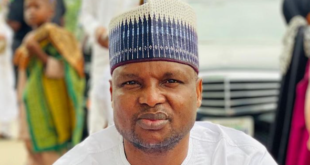The discoveries often derive from unexpected changes in the strategy or from new methodologies. It is widely understood that repeating the same actions hoping for different results can be seen as madness.
The South -est has long been home to influential political figures, yet their contributions have often been neglected, leading to persistent feelings of marginalization. The list of prominent leaders is broad, but the circumstances for the south -est have remained tangling, if not deteriorated.
A key issue was the approach of the Region to its political challenges. There is the perception that the south -est struggles to engage in compromise and negotiations necessary. This could be attributed to a leadership model focused on equality and centralized power that has failed to adapt to the complex political panorama of Nigeria. Success navigation through this panorama requires flexibility and collaboration, quality that often missed in the previous leadership.
However, there is hope with Benjamin Kalu’s leadership style, which emphasizes the negotiation on the clash. Initially, his position as vice -president was accepted with disappointment by many who had hoped for a higher role. However, his approach proved to be beneficial, since he successfully unites the Region and works to integrate it into national politics, moving away from an opposition position.
Recently, for the first time, the southern officials -East gathered for strategies on how to benefit from the region, inspired by Kalu’s leadership. This cooperative effort has not been seen in the past, despite previous political leaders.
Through loyalty to his party and effective negotiation, Kalu has obtained the establishment of the commission for the development of the southern -east, marking a significant result. Historically, the region would have remained behind in such developments, highlighting its effective leadership.
Kalu’s methods have drawn comparisons with the political strategies of the South West, which favor non -conflict approaches that may seem shy but eventually produce favorable results. This clearly contrasts with past leadership styles that have resorted to the clash, which led to tragic consequences for the south -st.
Previous figures such as Odimegwu Ojukwu and Nnamdi Kanu had used aggressive tactics to deal with the problems of the region, but these approaches led to significant losses and suffering. Likewise, Ike Ekweremad, although influential, has not been able to exploit his position for a significant benefit for the region. Peter Obi’s mandate has also undergone criticism due to the lack of political acuity necessary for authentic progress, above all because his supporters used the divisive rhetoric.
The OBI approach, in particular as regards ethnic and religious issues, has alienated potential supporters and created the faction. These false steps have provided precious lessons, highlighting the need for a different strategy in the political commitment of the South -est.
Despite being relatively new in its role, Benjamin Kalu quickly made great strides to lift the region, attracting projects and building relationships that bring the South closer to the center of political power. His vision is resounding with the population, including traditional sovereigns who promised substantial support for the APC in the next elections.
Kalu is even taking assertive measures, reporting to the governor Alex Otti that remaining outside the central party would hinder progress. Kalu’s attention on political alignment is essential for long-term development in the south-east and is actively working to correct previous leadership deficiencies.
Bamidele Atoyebi, the conocator of the ideological group of bats, is committed to the responsibility and monitoring of policies while also acts as a social worker, criminologist, maritime administrator and philanthropist. He sent this message from Abuja.
 JamzNG Latest News, Gist, Entertainment in Nigeria
JamzNG Latest News, Gist, Entertainment in Nigeria








